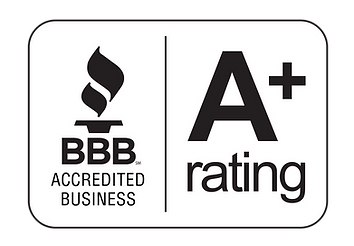MEDICARE SET ASIDE ACCOUNT (MSA)
Medicare Set Aside | How Structured MSA Saves | Why MSA?
Workers Compensation (WCMSA), Liability MSA (LMSA) and No-Fault MSA (NFMSA)
Medicare Set Aside Arrangements (MSA) 2026
What is a Medicare Set Aside (MSA)?
A Medicare Set-Aside Arrangement (MSA) is an allocation of a portion of a workers’ compensation, liability, or no-fault settlement, to pay for future medical expenses related to a workers’ compensation injury, illness, or disease, or the injury, illness or disease arising out of the accident or incident that gave rise to the liability or no-fault claim. Medicare Secondary Payer also includes actions governed by the Federal Employees’ Compensation Act, the Federal Coal Mine Health and Safety Act of 1969, the Longshore and Harbor Workers’ Compensation Act and the Jones Act. An MSA is established from a portion of the settlement amount to be used to pay future medical expenses that (a) are related the job or accident-related injury and (b) would otherwise be payable by Medicare. These funds must be depleted before Medicare will pay for treatment related to the workers’ compensation injury, illness, or disease, or the injury, illness or disease arising out of the accident or incident that gave rise to the liability or no-fault claim.
Insurance companies have been using Worker’s Compensation Medicare Set Aside agreements (WCMSA) as a tool to resolve cases involving a Medicare beneficiary with a future medical component since 2001 [
see Parashar B. Patel, Medicare Secondary Payer Statute: Medicare Set-Aside Arrangements, Centers for Medicare and Medicaid Services Memorandum, July 23, 2001].
Medicare has made it clear in its public statements, that the agency believes that Medicare set-asides are the best method to protect the program from paying for injury-related care when future medicals are funded by a settlement. However, CMS does not mandate a specific mechanism to protect their interests. CMS also emphasizes that "the law requires that the Medicare Trust Funds be protected from payment for future services whether it is worker's compensation or liability case. There is no distinction under the law" [ see Sally Stalcup, MSP Regional Coordinator (
May 2011 Handout ) and Charlotte Benson, Medicare Secondary Payer – Liability Insurance (Including Self-Insurance) Settlements, Judgments, Awards, or Other Payments and Future Medicals – INFORMATION, Centers for Medicare and Medicaid Services Memorandum, September 29, 2011 ]
Medicare Secondary Payer Act (MSP) 42 U.S.C. §1395y(b)
Originally signed into law by the late U.S. President Jimmy Carter in 1980, the MSP currently requires in any case in which a person who is eligible for Medicare settles a personal injury, auto accident, or worker's compensation claim:
- Settlement must be reported
- Any medical treatment for claimed injuries paid for by Medicare are subject to reimbursement
- Any future treatment for claimed injuries that might be obtained through Medicare must be considered.
What is a Structured Medicare Set Aside (Structured MSA)? How Does a Structured MSA Save Money on the Cost of an MSA?
A common way to show that settling parties are taking into account Medicare's interest is by the deposit of cash, into a dedicated interest bearing account, for the amount required to fund all related future Medicare covered medical expenses and Medicare covered prescriptions over the injured party's life.
A Structured MSA is an alternative Workers Comp MSA (WCMSA), Liability MSA (LMSA) or No Fault MSA (NFMSA) funding arrangement. Seed money plus annuity equals savings. A Structured MSA combines cash seed money equal to two years of related Medicare covered expenses and anticipated near term related major Medicare covered expenses (e.g. surgery anticipated next year, replacement of wheelchair) with annual structured annuity payments for the life expectancy set forth in the MSA. MSA's can be funded with temporary life annuities, life annuities or annuities with a period certain. More information on these different types of structured annuities can be found here .
Structured settlement annuities are the most cost-effective way to fund a Medicare Set-Aside
- Structured settlement annuities will always save money over a straight cash MSA, regardless of the type of annuity used.
- If a structured settlement is used to fund the MSA and the funds from the annual structured settlement annuity deposits are exhausted within an annual period, Medicare will pay medical costs for the remainder of that period. #structuredmsa #seedmoney
The Center for Medicare and Medicaid Services (CMS)
WCMSA Reference Guide Version 4.1 ( August 1, 2024) Section 4.1 Considerations and Guidelines, states that "an individual or beneficiary may consider seeking CMS approval of a proposed WCMSA amount for a variety of reasons. The primary benefit is the certainty associated with CMS reviewing and approving the proposed amount with respect to the amount that must be appropriately exhausted. It is important to note, however, that CMS approval of a proposed WCMSA amount is not required". While there is no statutory or regulatory provisions requiring that a WCMSA proposal be submitted to CMS for review,
submission of a WCMSA proposal is a recommended process.
If you choose to submit a WCMSA for review, CMS requests that you comply with its established policies and procedures. CMS will only review new WCMSA proposals that meet the following criteria:
All workers' compensation cases where the injured party is a Medicare recipient or is expected to be a recipient within 30 months of date of settlement, or if the amount of settlement is over $250,000, Medicare' s interests must be considered. Note again that this is a CMS review threshold and not a safe harbor. A Medicare Set-Aside Allocation amount is determined through the analysis of the particular case. Medicare considers the allocation to be the primary fund for paying Medicare covered expenses compensable to the injury.
Once the allocation amount is exhausted, Medicare becomes the primary payor of the Medicare covered expenses for the compensable injury.
Enforcement Rights of The Centers for Medicare and Medicaid Services
42 U.S.C. Sec 1395Y provides the following:
- The Centers for Medicare and Medicaid Services' interest be protected
- The Centers for Medicare and Medicaid Services have monetary rights against plaintiffs, plaintiff attorneys and plaintiff advisors when the services' interest is not protected
- The Centers for Medicare and Medicaid Services have double recovery rights against insurance carriers, their legal counsel and their advisors when the interest of the services' is not protected
The above can be achieved by depositing money into an interest bearing account in the amount of the Medical Set-Aside Allocation ("MSA"). Alternatively, a Structured MSA allocation is possible. A Structured MSA combines cash seed money with a structured settlement annuity and periodic payments are made on a defined schedule to cover annual Medicare eligible expenses in future years.
Structured settlement annuities with their rated age capabilities and inherent guarantees (annuities are a form of Insurance) make them ideally suited for the task of funding the life contingent future payments. As stated above, meaningful savings are possible though the use of Structured MSAs, with or without rated ages, particularly on longer duration obligations.
In order to correctly perform this task one must obtain the following:
- Independent Medical Needs Assessment through a
Life Care plan
- Independent Economic Present Value calculation based on generally accepted method of evaluation
MSA with Professional Administration v Self-Administered MSA?
If you are considering self-administration of your MSA, consider that there is a lot to keep track of with MSA Compliance, not to mention it is time consuming. If you self administer your MSA, you must not only become familiar and aware of the current MSA rules, you must also keep track of changes in the rules and incorporate them as applicable to remain compliant.
It can be more complex if you are dually eligible for Medicare and Medicaid and have an MSA within a Special Needs Trust or Supplemental Needs Trust. If you mess up, the consequences may be lost benefits. We partner with other independent firms who assist in providing the administrative services required to help keep you in compliance. Fees are reasonable. Please contact us for details.
Click for Medicare Set Aside FAQ
Call 4structures.com at 888-325-8640 for a Structured MSA quote and to discuss your MSA options in 2026. We quote Structured MSAs for workers' compensation, no-fault and liability cases. Last updated May 9, 2025
#MSAsavings #MSA #medicaresetaside #structuredmsa #WCMSA #NFMSA #LMSA #selfadministermsa #professionallyadministeredmsa #reducemymsa





